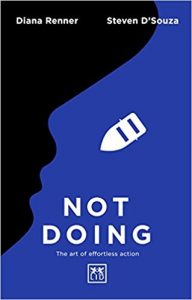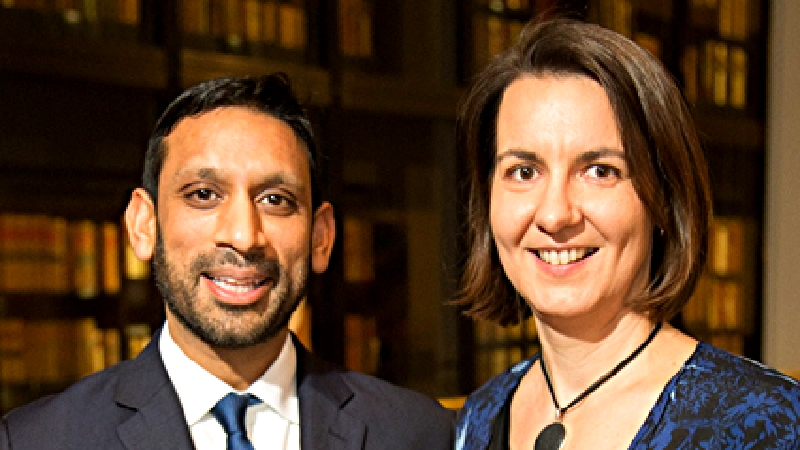To Do Or Not To Do?

Move over, Shakespeare. “To be or not to be” is no longer the question of the moment. Diana Renner [link] and Steven D’Souza [link] have a better question for this maniacally active business and social world.
 The two authors (Steven is also one of our NextSensors) have just published Not Doing: The Art of Effortless Action [UK link] [US link], and it is a special book in at least two ways.
The two authors (Steven is also one of our NextSensors) have just published Not Doing: The Art of Effortless Action [UK link] [US link], and it is a special book in at least two ways.
Steven, whom I first met at a diversity conference back in 2005 in the UK when he was introducing his first book [link], has dedicated this latest book to me. People often say that they are “touched” when something like this happens; but, please believe me, when you see an author’s words at the front of a book aimed at yourself, well, the feeling is intense.
The second reason this book is important is that it continues the fine tradition of thinking in new ways, begun when Diana and Steven published Not Knowing: The Art of Turning Uncertainty into Opportunity [link]. In that book, the authors noted that the claim of always knowing what is or is not important can blind someone from exploring, which can open open whole new personal and business vistas.
In Not Doing, the transition from Not Knowing is smooth from the very first of the book. Say the authors:
“The realities of our workplaces are fluid, dynamic, and ever-changing…. [As a result,] We might feel:”
- That despite our best efforts, we are making no progress in our work
- Tempted to find a quick fix or jump into action
- A need to control, imposing our own agenda
- A sense of pressure or urgency to act fast
- Overwhelmed by strong feelings, like anxiety or anger
- Excessively busy
- Engaged in mindless action
- That time speeds up or runs out
- An avoidance of reality
- Exhausted and burnt out
- A lack of joy and fulfillment.
- Inaction
- Not achieving
- Loneliness
- Passivity
- Incompetence
- Failure
- Wasting time
- Not producing
- Not being valued
- Loss of importance or relevance.
As you may have guessed, the bulk of the book is about (1) The Dysfunctions of Doing, and (2) “Negative Capabilities.” In sum, you will quickly be persuaded in the first part that mindless action seldom leads to genuine progress. And, in the second, the authors take a phrase made famous by a British poet, John Keats, and adapt it to show how not doing can also open up whole new personal and business vistas.
I started out my relationship with Steven as a kind of mentor. Now, I find, he and Diana are teaching me at a time when I feel their message is of utmost importance. I really cannot say how significant this book can be to you. But I can share what Margaret Heffernan [link], the Chief Executive of Entrepreneur, said in this book’s foreword:
Leading, managing, deciding, directing, delegating, competing, co-creating: all the verbs of work characterize action. Above all else, a leader must be busy. The rate and pace of activity has become a status symbol: people, companies, countries cannot function without me. Life has become a race — to the top or the bottom – and we spend our lives in running shoes.
Against this backdrop of sound and fury, Renner and D’Souza propose a compelling alternative: Pause. Think. Breathe. Take the effort out and replace it with time to be where you are. Their argument is timely.
 Joseph Pistrui (@nextsensing) is Professor of Entrepreneurial Management at IE Business School in Madrid. He also leads the global Nextsensing Project, which he founded in 2012.
Joseph Pistrui (@nextsensing) is Professor of Entrepreneurial Management at IE Business School in Madrid. He also leads the global Nextsensing Project, which he founded in 2012.

